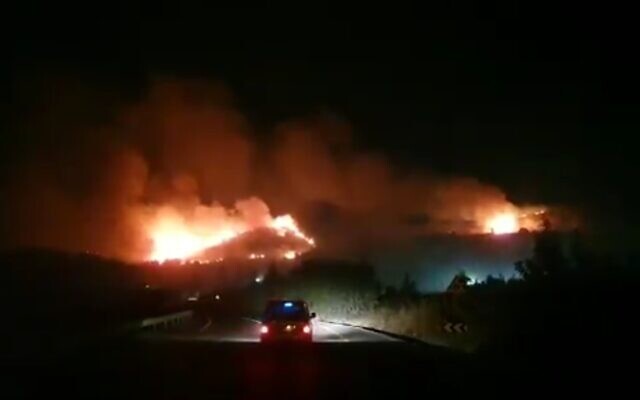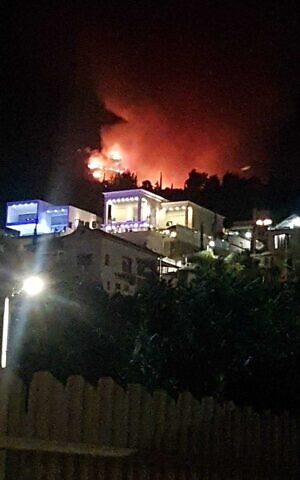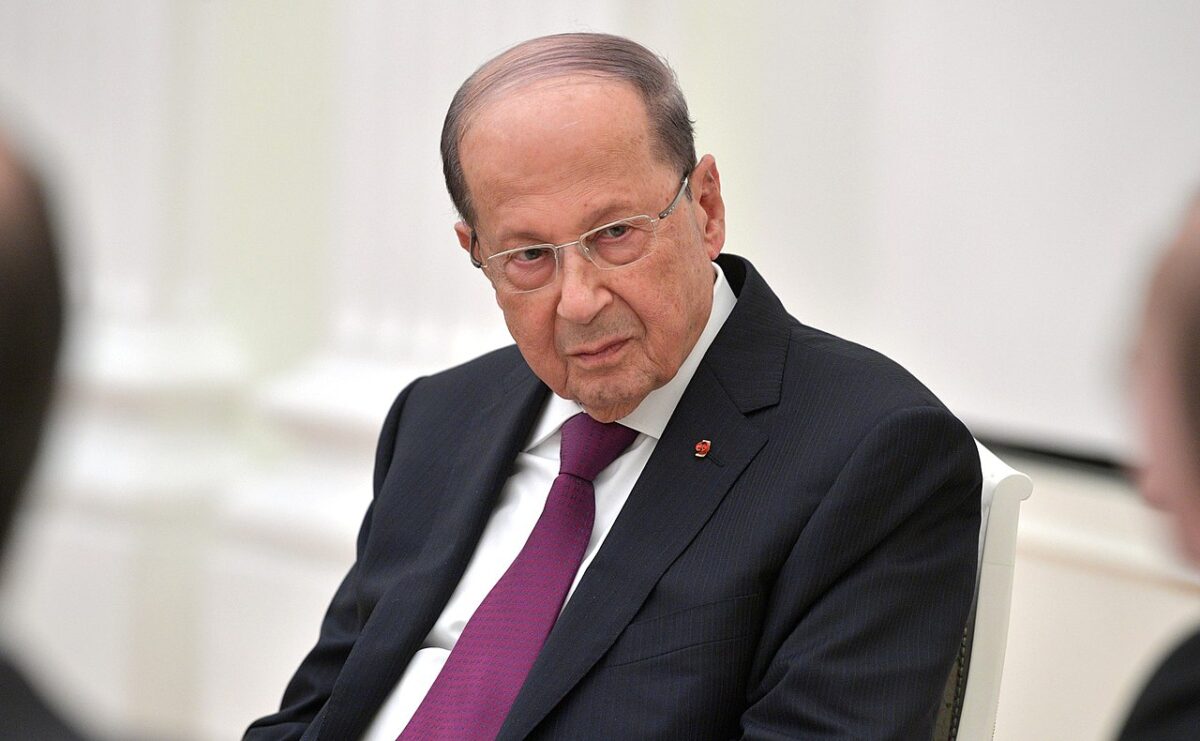Lebanese President Michel Aoun is incredibly out of touch with reality.
Judging by the comments he made on August 5, following a sudden escalation of tension on Israel’s border with Lebanon, one can only conclude that he inhabits a surreal, topsy-turvy world.
On August 4, Palestinian forces in Lebanon fired three rockets at Israel. One landed harmlessly inside Lebanese territory and two crashed into Israel, setting off fires and burning hundreds of acres of forest and scrubland perilously close to the city of Kiryat Shomona.

The last incidence of aggression emanating from Lebanon occurred three months ago, during the fourth war in the Gaza Strip, when unidentified Palestinian groups in Lebanon fired 10 rockets at Israel.
Responding to the latest outbreak of unprovoked aggression from Lebanese territory, Israel exercised its right of self-defence and fired some 100 artillery shells into southern Lebanon. In an unmistakable sign of the gravity of the situation, Israel then launched its first air strikes in Lebanon in about seven years.

Condemning Israel’s fully justified retaliatory raids as a threat to Lebanon’s sovereignty, Aoun said, “What happened is a flagrant and dangerous violation of Security Council Resolution 1701 and a direct threat to security and stability in the south.”
He was referring, of course, to a United Nations resolution, passed on August 11, 2006, that ended Israel’s month-long war with Hezbollah.
One of its clauses, calling for the disarmament of all armed groups in Lebanon, has been persistently ignored by Hezbollah, Aoun’s political ally.
Hezbollah, which fired a volley of 19 rockets into the disputed Mount Dov region of the Golan Heights following Israel’s air strikes, has steadfastly refused to disarm and has amassed an arsenal of more than 100,000 rockets and missiles since the passage of the United Nations resolution.
Aoun is acutely aware of Hezbollah’s gross violation of the resolution, but has conveniently chosen to remain silent and to blame Israel for the most recent escalation of cross-border violence.
It’s abundantly clear that Lebanon, which is currently facing one of the most serious economic and political crisis in its history, is manifestly incapable of defending its sovereignty, much less challenging Hezbollah.
Aoun’s transparently pathetic tactic fools no one.
As a statement released by the Israeli army put it, “Without getting into the identity of who shot the rockets, it’s clear that the Lebanese government bears full responsibility for any fire at the State of Israel’s territory. The Lebanese state lacks control over terror groups operating within it.”
Just as the weak Lebanese government was patently unable to deal forcefully with the alarming establishment of a PLO state-within-a-state in southern Lebanon from the late 1960s onward, so Lebanon today lacks the fortitude or the ability to confront Hezbollah and the Palestinian groups.
Israel has no interest whatsoever in fighting Lebanon. As Israeli military spokesperson Ran Kochav said on August 6, Israel has “no intention of going to war, but we do not want to turn the Lebanon border into a line of confrontation.”
Israel has sent a crystal clear message to Lebanon that it desires nothing more than a quiet border. But with enemies like Hezbollah, this may not be possible.
Nonetheless, Aoun keeps blaming Israel for the escalating tensions when he should be totally focused on fixing Lebanon’s deep-seated internal problems.
